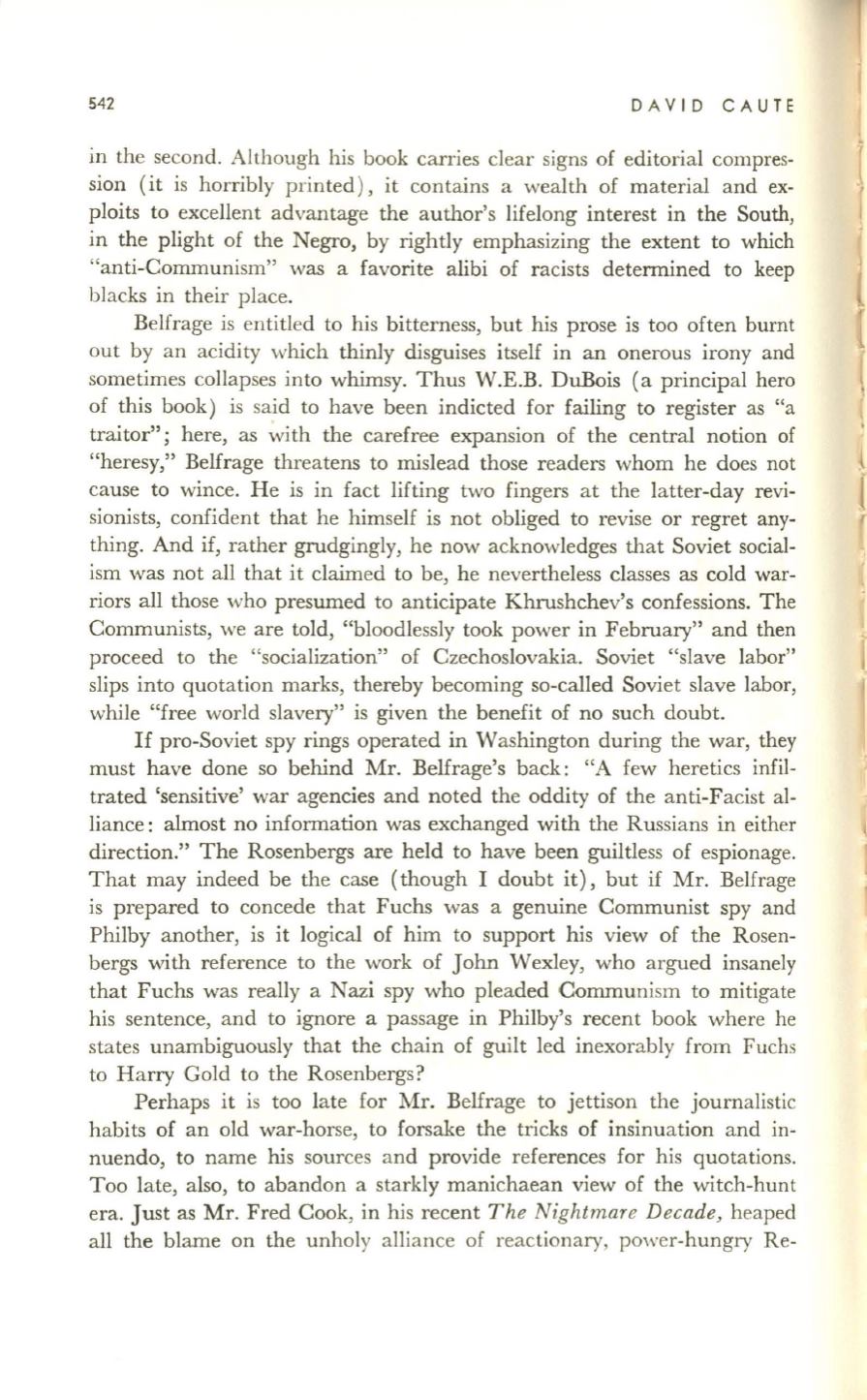
542
DAVID CAUTE
in the second. Although his book carries clear signs of editorial compres-
sion (it is horribly printed), it contains a wealth of material and ex–
ploits to excellent advantage the author's lifelong interest in the South,
in the plight of the Negro, by rightly emphasizing the extent to which
"anti-Communism" was a favorite alibi of racists determined to keep
blacks in their place.
Belfrage is entitled to his bitterness, but his prose is too often burnt
out by an acidity which thinly disguises itself in an onerous irony and
sometimes collapses into whimsy. Thus W.E.B. DuBois (a principal hero
of this book) is said to have been indicted for failing to register as "a
traitor"; here, as with the carefree expansion of the central notion of
"heresy," Belfrage threatens to mislead those readers whom he does not
cause to wince. He is in fact lifting two fingers at the latter-day revi-
sionists, confident that he himself is not obliged to revise or regret any–
thing. And if, rather grudgingly, he now acknowledges that Soviet social–
ism was not all that it claimed to be, he nevertheless classes as cold war–
riors all those who presumed to anticipate Khrushchev's confessions. The
Communists, we are told, "bloodlessly took power in February" and then
proceed to the "socialization" of Czechoslovakia. Soviet "slave labor"
slips into quotation marks, thereby becoming so-called Soviet slave labor,
while "free world slavery" is given the benefit of no such doubt.
If
pro-Soviet spy rings operated in Washington during the war, they
must have done so behind Mr. Belfrage's back: "A few heretics infil–
trated 'sensitive' war agencies and noted the oddity of the anti-Facist al-
liance: almost no information was exchanged with the Russians in either
direction." The Rosenbergs are held to have been guiltless of espionage.
That may indeed be the case (though I doubt it), but if Mr. Belfrage
is prepared to concede that Fuchs was a genuine Communist spy and
Philby another, is it logical of him to support his view of the Rosen-
bergs with reference to the work of John Wexley, who argued insanely
that Fuchs was really a Nazi spy who pleaded Communism to mitigate
his sentence, and to ignore a passage in Philby's recent book where he
states unambiguously that the chain of guilt led inexorably from Fuchs
to Harry Gold to the Rosenbergs?
Perhaps it is too late for Mr. Belfrage to jettison the journalistic
habits of an old war-horse, to forsake the tricks of insinuation and in–
nuendo, to name his sources and provide references for his quotations.
Too late, also, to abandon a starkly manichaean view of the witch-hunt
era. Just as Mr. Fred Cook, in his recent
The Nightmare Decade,
heaped
all the blame on the unholy alliance of reactionary, power-hungry Re-


